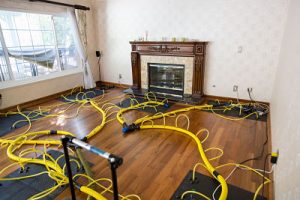Water Repair: Restoring and Recovering from Water Damage
Water damage can be a homeowner’s nightmare, causing extensive destruction and financial burden. Whether it’s a burst pipe, a leaking roof, or a flooded basement, water damage requires immediate attention and effective repair methods. In this comprehensive guide, we will explore the topic of water repair, providing valuable insights and solutions to help you restore your property and recover from the damage caused by water.

Understanding Water Damage
Water damage refers to the destruction and deterioration of structures, materials, and belongings due to the intrusion or accumulation of water. It can occur in various forms, including leaks, floods, plumbing failures, or natural disasters. Water damage can affect different areas of a property, including walls, ceilings, floors, electrical systems, and personal belongings. Prompt action is crucial to minimize further damage and prevent mold growth and other secondary issues.
The Importance of Water Repair
Water repair is vital for several reasons. Firstly, it restores the structural integrity of your property. Water damage weakens building materials, leading to structural instability if left unaddressed. Secondly, effective water repair prevents further damage. Lingering moisture can promote mold growth, rotting, and deterioration of materials, causing more extensive and costly repairs. Lastly, water repair ensures a safe and healthy living environment, protecting occupants from potential health hazards associated with mold and bacteria.
Steps for Water Repair
Safety Assessment
Before starting any repair work, it is essential to assess the safety of the affected area. Ensure that the power supply is turned off to prevent electrical hazards. If necessary, consult with professionals who can evaluate potential risks and provide guidance on safe restoration procedures.
Water Extraction
The first step in water repair is to remove standing water from the affected area. This can be done using pumps, wet-dry vacuums, or water extraction equipment. It is crucial to remove water promptly to prevent further damage and inhibit mold growth.
Drying and Dehumidification
Once the standing water is removed, thorough drying and dehumidification are necessary. Use industrial fans, dehumidifiers, and specialized drying equipment to eliminate moisture from the air and affected surfaces. This step helps prevent mold growth and ensures a dry environment for repair work.
Removal of Damaged Materials
Inspect the affected area for damaged materials that cannot be salvaged. This may include saturated drywall, insulation, carpets, and furniture. Remove and dispose of these materials properly to prevent mold growth and contamination. Wear protective gear, such as gloves and masks, during this process.
Cleaning and Disinfection
Thoroughly clean and disinfect all surfaces that came into contact with water. Use appropriate cleaning agents to eliminate bacteria, mold spores, and other contaminants. Pay attention to hidden areas, such as behind walls and under flooring, to ensure comprehensive cleaning.
Structural Repairs
Once the area is clean and dry, proceed with necessary structural repairs. Replace damaged drywall, insulation, and flooring. Repair or replace electrical systems, plumbing fixtures, and any other components affected by water damage. Work with experienced contractors or restoration professionals to ensure proper repairs and minimize the risk of future water-related issues.
Prevention Measures
After completing the repairs, take proactive measures to prevent future water damage. Regularly inspect your property for leaks, maintain proper drainage systems, and address any plumbing issues promptly. Install water detection devices and consider using water-resistant materials in vulnerable areas, such as basements.
Frequently Asked Questions
Can I repair water damage myself?
While minor water damage repairs can be done by homeowners, extensive or complex damage is best left to professionals. Professional water repair specialists have the expertise, equipment, and knowledge to address water damage effectively, ensuring thorough restoration.
How long does water repair take?
The duration of water repair depends on the extent of the damage, the size of the affected area, and other factors such as the type of repair required. A professional restoration company can provide a more accurate estimate based on a thorough assessment.
How can I prevent water damage in the future?
To prevent water damage, it is essential to take preventive measures. Regularly inspect and maintain your property, address leaks promptly, ensure proper drainage, and consider installing water detection devices. Proper insulation and ventilation can also help prevent moisture-related issues.
Is mold growth inevitable after water damage?
Mold growth can occur within 24 to 48 hours after water damage if the affected area is not properly dried and cleaned. Prompt and thorough water repair, including drying and disinfection, significantly reduces the risk of mold growth.
Can water damage affect the value of my property?
Untreated water damage can negatively impact the value of your property. Potential buyers may be deterred by the presence of water damage and the associated risks. Timely water repair and documentation of restoration efforts can help maintain or improve the property’s value.
How do I choose a reliable water repair company?
When selecting a water repair company, consider their experience, certifications, and customer reviews. Look for companies specializing in water damage restoration and have a proven track record of successful projects. Request multiple quotes and compare services to make an informed decision.
Water repair is crucial for restoring your property and recovering from the damage caused by water. By following the steps outlined in this guide, including safety assessment, water extraction, drying, removal of damaged materials, cleaning, disinfection, structural repairs, and prevention measures, you can effectively address water damage and ensure a safe and healthy living environment. Prioritize prompt action and, when necessary, consult with professionals to minimize further damage and ensure thorough restoration.
If you are experiencing residential water damage or commercial property damage. Call one of our IICRC certified specialists today.


